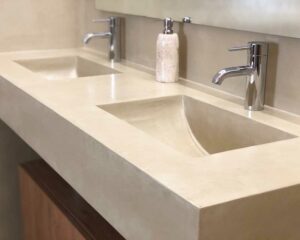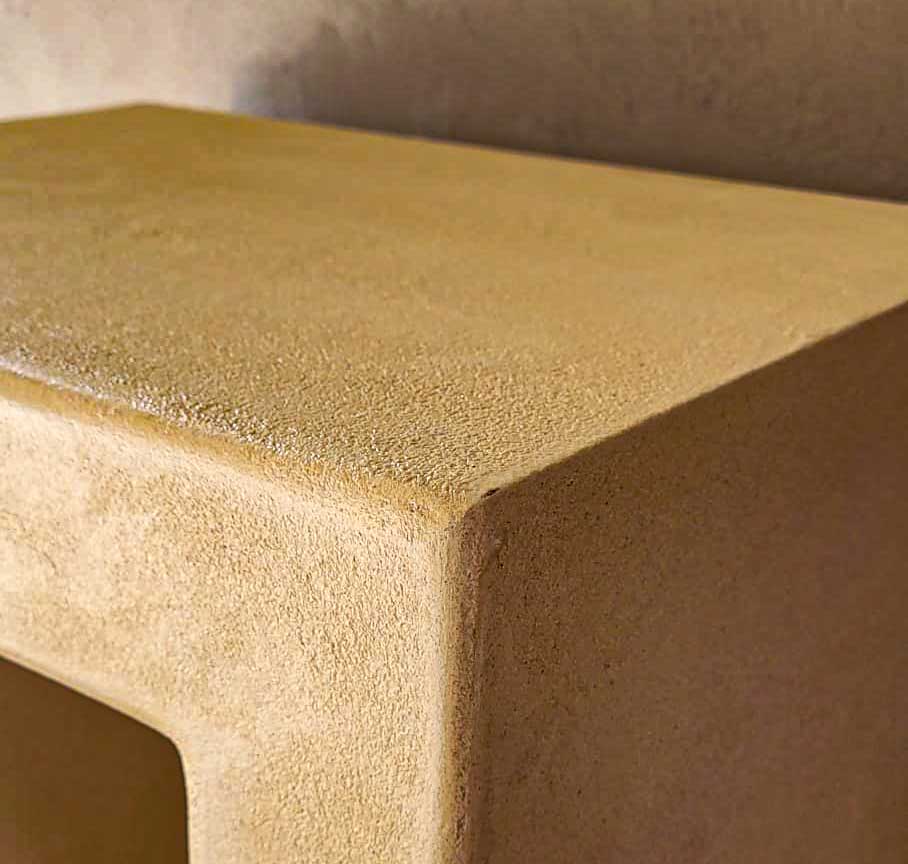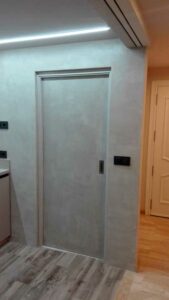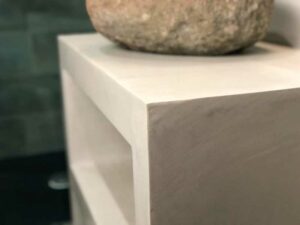
Washbasin Cabinet
Washbasin Cabinet Sinks of all kinds When it comes to reforming the bathroom, one of the elements that should be seen and decided is the
The connection between architecture and microcement is becoming stronger every day. It’s no coincidence—this material blends aesthetics and performance in a way that makes it a real alternative to traditional finishes like marble, stone, or granite.
One of microcement’s biggest advantages is its ability to recreate the look of natural materials at a much more affordable cost. On top of that, it offers endless options in terms of colors, textures, and finishes, making it easy to adapt to any architectural style. This is why it has become a go-to choice for modern and minimalist projects, where clean lines and seamless surfaces are essential.
Microcement is not just about looks. It’s also durable, resistant, and easy to maintain. These qualities make it highly appreciated by architects and designers who want to create elegant spaces without giving up functionality or longevity.

Beyond its visual appeal, microcement is also known for being strong and long-lasting. It’s resistant to water and daily wear, which makes it perfect for high-traffic areas as well as outdoor spaces. Because it’s so easy to clean, it’s also a smart choice for kitchens and bathrooms, where hygiene is especially important.
Another key benefit of microcement is how it’s applied. It’s installed in very thin layers directly over the existing surface, which makes it an ideal option for renovations or remodels—no need for messy and costly demolition. On top of that, its versatility allows it to be used on floors, walls, and even countertops, opening the door to unique, customized designs that adapt to each project.
Beyond its visual appeal, microcement is also known for being strong and long-lasting. It’s resistant to water and daily wear, which makes it perfect for high-traffic areas as well as outdoor spaces. Because it’s so easy to clean, it’s also a smart choice for kitchens and bathrooms, where hygiene is especially important.
Another key benefit of microcement is how it’s applied. It’s installed in very thin layers directly over the existing surface, which makes it an ideal option for renovations or remodels—no need for messy and costly demolition. On top of that, its versatility allows it to be used on floors, walls, and even countertops, opening the door to unique, customized designs that adapt to each project.
For more details and advice, visit our CimentStudio website to explore solutions tailored to your needs.

Washbasin Cabinet Sinks of all kinds When it comes to reforming the bathroom, one of the elements that should be seen and decided is the

Reform Doors with Microcement Restore doors with microcement When applying microcement on a door, the best option is undoubtedly a smooth sliding door. Although outside

Top Microcement Uses: Washbasins, Shower trays, Furniture, Countertops Washbasins in Microcement Nowadays and more and more, new materials are being sought for our home, and